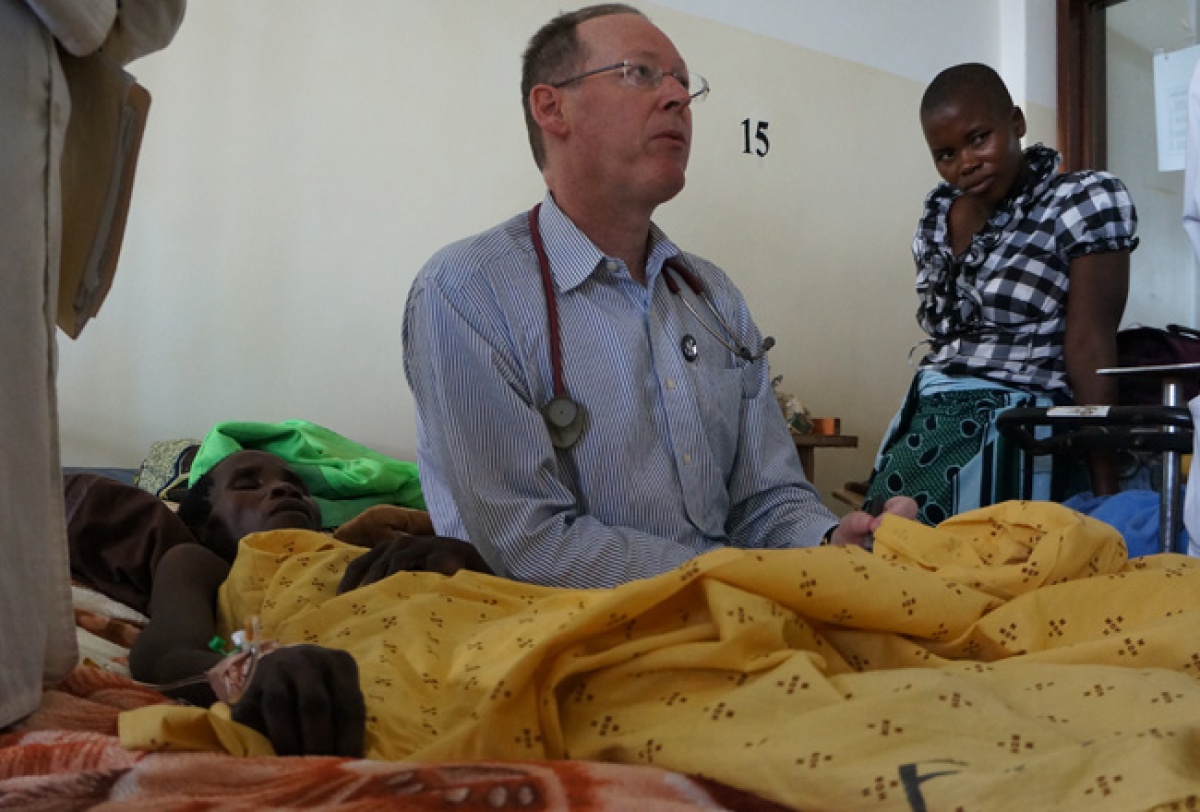A Difficult Diagnosis in Malawi Turns a Patient's Life Around
Posted on Dec 2, 2013

Rose Kaliwo was too weak to walk when she arrived at Neno District Hospital in rural southwestern Malawi. It was the end of December 2012, and the 50-year-old mother of nine who spent most of her days selling rice in a nearby market was vomiting and had a high fever with stomach pain.
Clinicians with Abwenzi Pa Za Umoyo (APZU), PIH’s Malawian sister organization, collected a sputum sample from Kaliwo to test for tuberculosis. It was the most likely diagnosis given that in Malawi, as in many countries in southern Africa, the burden of TB is daunting. The World Health Organization estimates that 163 of every 100,000 people in Malawi will become sickened with TB each year. In the U.S., for comparison, it’s estimated that 3.2 of every 100,000 people are annually sickened with the ancient scourge.
But as the lab staff inspected the small amount of mucus from Kaliwo’s lungs under a microscope, they found no indication of TB. They tested her for HIV, and that initially came back negative, too. Clinical Officer Bright Mailosi started her on antibiotics and, with the help of his team, monitored Kaliwo around the clock. They treated her for chronic gastritis due to Helicobacter pylori, a bacterium in the stomach. Things didn’t get better, though. She continued to shed pounds. Her pain persisted.
“The clinicians were trying their best,” Kaliwo recalls. “And though no one knew what I had at first, they weren't willing to give up on me.”
Despite the negative test results, Mailosi couldn’t shake the hunch that TB, an ailment that kills more than 1 million people every year, was devouring the patient.
It wasn't the health system that almost failed her—she'd received a great deal of medical attention from the team in Neno—but rather diagnostic algorithms that have long failed people with atypical presentations of TB.
In February 2013, a few weeks after Kaliwo was admitted, PIH Co-founder Dr. Paul Farmer visited Neno District Hospital. Kaliwo’s gaunt frame was tucked under a thin yellow blanket. “Her lung exam was unremarkable: the symptoms were mostly localized to her gastrointestinal tract and by the time I saw her she was wasted away to half her body weight and dying,” Farmer says. “She was also very anemic.”
Farmer sat on her bed and struck up a conversation with Kaliwo and the nearby APZU clinicians, including Mailosi. Together they ran through the history of her illness and attempts at treatment. After a short while, Farmer seconded Mailosi’s original suspicion—that TB was the culprit. The challenge was that Kaliwo had extrapulmonary TB and the bacteria were confined to her gastrointestinal tract, not her lungs. It would be impossible for anyone to properly diagnose her from the sputum sample.
“International guidelines for TB diagnosis are still fixated on smear-positive pulmonary TB, which by definition misses cases like Mrs. Kaliwo’s. We need better diagnostics, and have for a century, but we also need this to be our default diagnosis for patients with wasting or consumptive disease and few localizing signs,” Farmer says. “It wasn't the health system that almost failed her—she'd received a great deal of medical attention from the team in Neno—but rather diagnostic algorithms that have long failed people with atypical presentations of TB.”
In Malawi, extrapulmonary TB comprises nearly a quarter of all TB cases.

A recent image of Rose Kaliwo, who has returned to selling rice in a nearby market and is helping educate community members about the risk of TB and HIV. Photo: Emily Wroe/Partners In Health.
The APZU team started Kaliwo on a standard TB treatment regimen. Then Mailosi and his team ordered additional HIV tests because they knew the TB and HIV co-infection rate is high in Malawi. After additional tests showed that Kaliwo was HIV-positive, she was immediately placed on antiretroviral therapy (ART).
Within a few weeks, her turnaround was discernible—she gained weight, her eyes appeared rejuvenated, and she was no longer perpetually fatigued. Kaliwo was discharged from the hospital soon after, given nutritional assistance, and assigned a village health worker who visited on a daily basis to ensure she was doing well and not suffering from the all-too-common and potentially severe side effects associated with TB drugs.
“There's nothing, alas, unusual about Rose Kaliwo's course—until after she was diagnosed. Then things changed, and for the better, since her care was soon delivered at home and through a community-based delivery platform, with nutritional assistance,” Farmer says. “That's why she's doubled her body weight: right diagnosis, right meds, right delivery platform.”
Kaliwo is back to selling rice in the market and taking care of her family. She’s also taken on a new role—that of an expert patient who’s working with APZU to help inform community members of the risks extrapulmonary TB poses.
By meeting with small groups and sharing her story, Kaliwo is helping the residents of Neno realize that a headache or fatigue or stomach ache—not only a cough—could be a sign that they have tuberculosis and need treatment.

